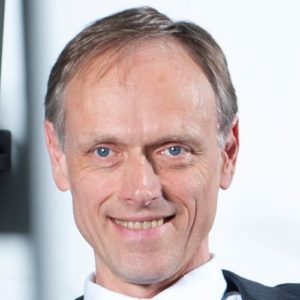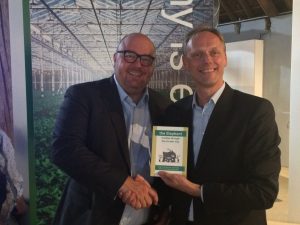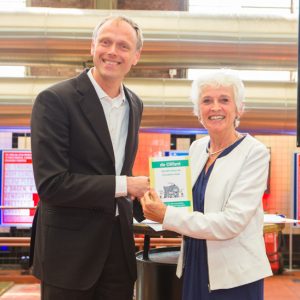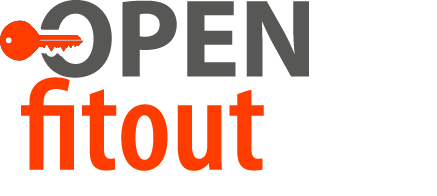About me
 Remko Zuidema is founder and chairman of the BRIQS Foundation. He is author of several books on climate positieve, circulair and inclusive buildings, holds lectures on sustainable building, teaches and performs research on the organizational and business models of the (inter)national (sustainable) construction world. Highlights on his approach are the position of (end-)users and investors in avoidance of the split-incentive, climate positieve ability of buildings and the transition towards a circulair construction economy on the basis of reused material loops. He is active in The Netherlands, Flanders, Indonesia and Brazil.
Remko Zuidema is founder and chairman of the BRIQS Foundation. He is author of several books on climate positieve, circulair and inclusive buildings, holds lectures on sustainable building, teaches and performs research on the organizational and business models of the (inter)national (sustainable) construction world. Highlights on his approach are the position of (end-)users and investors in avoidance of the split-incentive, climate positieve ability of buildings and the transition towards a circulair construction economy on the basis of reused material loops. He is active in The Netherlands, Flanders, Indonesia and Brazil.
Building bridges is a major theme in the life of Remko Zuidema, founder of the BRIQS Foundation. He grew up among city planners, architects and contractors. He was spoon-fed with ideas about architecture and urbanism. A study of Architecture at Delft University of Technology was a logical choice.
Connecting technology with society
But Remko knows from the start that technology and design are not enough for him. He does not want to think up beautiful designs in a back room, separate from society. That notion becomes the foundation for an exciting growth path that leads to a clear vision: connecting the technical content with the needs of society.
The organisation of technology
During his studies his greatest strength turns out to be combining technology and management – he is the first architecture student who applies total CAD to his thesis. Exactly that will be his main performance the first nine years after graduation with an architectural consultancy firm. On the one hand he is working as an operations coordinator with highly innovative offshore projects, complex in terms of technology, location and organization. In this vulnerable and exciting environment Remko coordinates the contributions of international partners and suppliers. On the other hand he experiences the exciting contrast between traditional technical development and realization in social housing and government housing.
Remko: “Only afterwards I realized that the way we worked in the offshore, was not standard in the construction industry. In the offshore every supplier and producer felt responsible for the integration of all parts into a whole: how does my product connect to your product? I have never seen that again in any housing or other construction project that I have directed for the architectural consultancy firm. It was an amazing learning experience.”.
The improvement of work processes

John Nederstigt -alderman economy and sustainability Haarlemmermeer- receives The Elephant book
The municipality of Amsterdam offers Remko a new challenge in the world of infrastructure. In the municipal engineering firm, he becomes the head of several departments of Civil Constructions and Installations. He manages some fifty people. In that role, he makes his employees, highly senior technical people, aware of the financial and organizational aspects of their work. Distinct agreements on roles, competences, responsibilities, internal control and accounting transform the departments to an assertive, transparent organization.
After his time in Amsterdam, at various workplaces Remko encounters a lack of cooperation and sense of responsibility and a culture of thinking in closed compartments Indications for Remko to start his own business. He initiates a consultancy with a new approach to social housing, office, education and care facilities. His main starting point: the customer rules, equal to the investor. Remko strongly believes that all parties involved in any building process need to focus much more on the needs of the end user. That is why he begins every project with mapping out the customers needs, including trends, together with his partners. Only then a schedule of requirements is drawn up, among others things based upon psychological, physical, technical and financial requirements and possibilities.
At that time he encounters the Slim Bouwen foundation (Smart Building), an organization that wants to promote the use of innovative products in buildings. The ‘smart builders’ within the foundation have extensive knowledge of the possibilities of technological product innovations, but too little understanding of real-estate and construction processes. Remko complements them perfectly. He becomes secretary/treasurer alongside founder and chairman Jos Lichtenberg, professor at the TU/e and stayed until recently.
Time and the built environment
Then Remko enters the political arena too. As a member of one of the Amsterdam district councils, his insight into the world of users of buildings grows. He begins to realize what the relationship is between time and the built environment: in its long existence a building is a clearinghouse for all kinds of users who stay for a relatively short period of time. In other words, the life cycle of a building does not reflect the life cycle of its users who all have their own different wishes, requirements and needs.
Recognition of the value of (biological) materials
 The (biological) materials problem also has an important temporal aspect: the materials in building products could have a much longer life, when these products, including the materials, would not be thrown out indiscriminately. (Biological) materials are now hardly ever recovered. Remko seeks out cradle- to-cradle Professor Michael Braungart and John Habraken, MIT professor for life. Within his political party D66, he sets up the nationwide Resources Expert Team. Moreover Remko actively contributes to the knowledge platform for sustainable materials management ( www.duurzaamgrondstoffenbeheer.nl ) of the TU Delft. The platform supports SME’s with knowledge about the sustainable use of (biological) materials in their business models.
The (biological) materials problem also has an important temporal aspect: the materials in building products could have a much longer life, when these products, including the materials, would not be thrown out indiscriminately. (Biological) materials are now hardly ever recovered. Remko seeks out cradle- to-cradle Professor Michael Braungart and John Habraken, MIT professor for life. Within his political party D66, he sets up the nationwide Resources Expert Team. Moreover Remko actively contributes to the knowledge platform for sustainable materials management ( www.duurzaamgrondstoffenbeheer.nl ) of the TU Delft. The platform supports SME’s with knowledge about the sustainable use of (biological) materials in their business models.
Prof. Jacqueline Cramer -former minister of Environment- receives The Elephant book
A broad vision
As you can see Remko Zuidema occupied almost every seat of all parties involved in the current building process. He has worked on the side of the client in the municipalities of Amsterdam and Delft, was active as a project manager for a construction management firm, knows contracting from his parents family business, and is familiar with the mores of architects and other consultants. As a politician and as a consultant he discovers how powerless the user was. But also the new arising possibilities there. And how many precious resources are still wasted unnecessarily.
We need to do things differently
For the larger part the building industry still operates rather headstrong and cocky without taking the client very seriously. Government and politics are ineffective in directing the industry. They do not supply the framework that forces the industry to change. Based on several decades of multiple experiences Remko developed ideas how things can be different. Or rather, how it should be different. In 2011 he founded the Briqs foundation to do just that. Inspiring and facilitating this so needed change through knowledge sharing via education and research.
[remko_author]
This post is also available in: Nederlands


